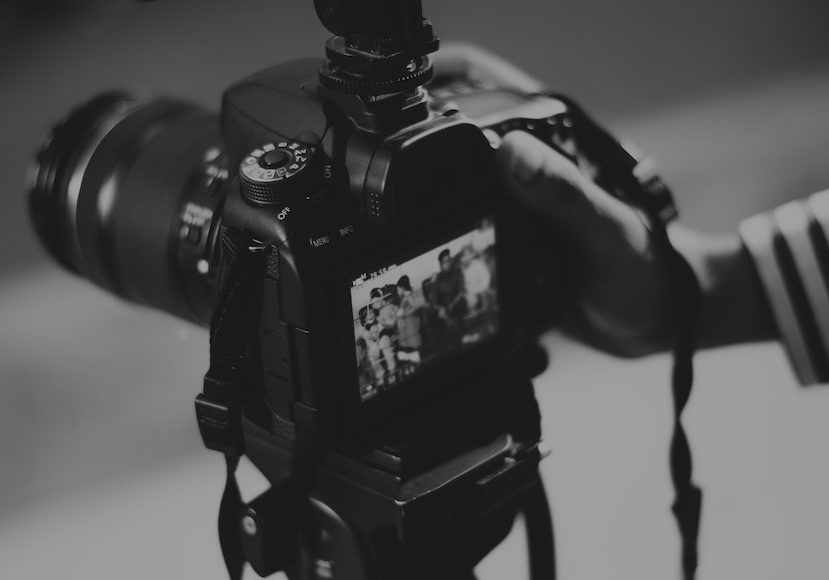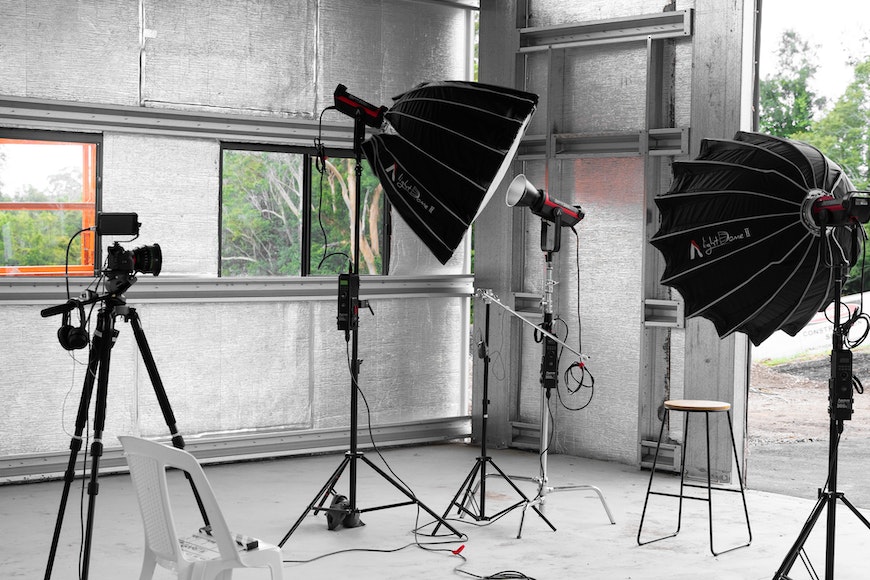
7 Essential Photography Skills for Success in 2024
Being a successful photographer isn't just about taking pretty pictures. In this guide, we look at the essential skills you need to stand out from the crowd.
Learn | By India Mantle
Do you have an eye for capturing breathtaking moments?
Are you always striving to learn and improve your photography skills? If so, you’re in the right place!
In this guide, we’ll explore the essential skills every photographer needs to master in order to excel in their craft.
From technical know-how to creativity and business acumen, we’ll cover everything you need to know to become a successful photographer in today’s competitive market.
So buckle up and get ready to embark on an exciting journey of self-improvement and growth!
Photographer Skills: Key Takeaways
- Master essential photography skills like technical knowledge, artistic talent, camera equipment expertise and editing software proficiency.
- Develop interpersonal skills such as communication, positivity and understanding for success in the industry.
- Enhance your craft with formal training workshops & online resources to take your photography to the next level or become a professional photographer.
Essential Photography Skills for Success in 2024
A successful photography career requires a diverse skill set that goes beyond simply capturing a beautiful image.
To create high-quality photographs, photographers must possess a perfect blend of technical knowledge, artistic talent, and interpersonal skills.
We’ll delve into the key photography skills every aspiring photographer needs to master, including essential photographer skills such as understanding exposure and mastering focus, as well as specific photography skills that help in building strong client relationships and promoting their services.
But it doesn’t end there!
To stay ahead of the curve, photographers must also be well-versed in the latest camera equipment, editing software, and photographic techniques.
This combination of skills ensures that you’re able to consistently produce stunning images that captivate your audience and set you apart from the competition.
1. Technical Skills

Credit: Rafael Barros
As a photographer, your technical skills are the foundation upon which you build your craft.
These include proficiency in camera operation, understanding of exposure, and mastery of camera focus.
To become a skilled photographer, it’s essential to familiarize yourself with various photographic equipment and techniques, such as lighting ratios, apertures, and shutter speeds.
Practice makes perfect, so don’t be afraid to experiment and try out different techniques to upgrade your technical prowess and create amazing images.
Understanding of Exposure
To create visually stunning images, mastering the art of exposure is crucial.
The exposure triangle, which consists of aperture, shutter speed, and ISO, determines the amount of light in a photograph.
By understanding the relationship between these three elements, you’ll be able to achieve the perfect exposure and capture breathtaking images in any lighting condition.
Additionally, learning to use tools like the histogram and white balance can help you further refine your exposure and create images that are true-to-life with balanced colours and optimal highlight and shadow detail.
Mastering Focus
Sharp, well-composed images are the hallmark of a skilled photographer.
How Much Do You REALLY Know About Photography?! 🤔
Test your photography knowledge with this quick quiz!
See how much you really know about photography...

To achieve this, you must master the art of focus.
Whether you’re capturing a stationary subject or tracking a moving object, the ability to focus accurately and quickly is essential.
Experiment with different camera focus modes and techniques, such as single-point autofocus and focus lock, to ensure your subjects are always in sharp focus.
And for those tricky moving subjects, don’t forget to switch to continuous or AI Servo autofocus mode to keep up with the action.
Lighting Techniques

Credit: Max Ravier
Lighting is the lifeblood of photography, and mastering various lighting techniques is an essential skill for any aspiring photographer.
Whether you’re working with natural or artificial light, understanding how to manipulate and control lighting can greatly enhance the mood and atmosphere of your images.
Experiment with different lighting techniques, such as backlighting, side lighting, and fill lighting, to achieve the desired effect and create visually stunning photographs.
Remember, capturing light effectively is a skill that requires practice and patience, so keep experimenting and learning to elevate your photography to new heights.
Understanding of Color Theory

Credit: Helena Lopes
Colour is a powerful tool in photography, and understanding colour theory can greatly enhance the visual appeal of your images.
By learning about the colour wheel, primary, secondary, and tertiary colours, and colour harmonies, you can create images that are both aesthetically pleasing and emotionally impactful.
Experiment with different colour combinations and relationships to evoke specific moods or emphasize particular elements in your photographs.
Mastering colour theory will empower you to create images that truly captivate your audience and leave a lasting impression.
Composition and Framing

Credit: Pixabay
A well-composed and framed photograph is a true work of art.
To achieve this, you must develop the ability to arrange elements within a frame in a visually pleasing and impactful manner.
This involves understanding and applying various composition techniques, such as the rule of thirds, leading lines, and balancing elements.
Practice these techniques and analyze the work of other photographers to continually refine your composition and framing skills.
With time and practice, you’ll be able to create images that not only capture the viewer’s attention but also tell a compelling story.
2. Interpersonal Skills

Credit: Andrea Piacquadio
In the world of photography, your interpersonal skills are just as important as your technical prowess.
Building strong relationships with clients, networking with other professionals, and effectively promoting your talent and business are all crucial aspects of a successful photography career.
Excellent communication skills, positivity, persistence, patience, and understanding are key to fostering these relationships and ensuring your clients are satisfied with your services.
So, remember to always hone your soft skills alongside your technical abilities to truly excel in the photography industry.
Ability to Direct Subjects

Credit: Wendy Wei
As a photographer, your ability to direct and pose your subjects is crucial for achieving desired expressions and body language in your images.
This skill is particularly important in portrait and group photography, where the subject’s pose and expression can make or break the image.
Detail photographers, who specialize in capturing intricate aspects of a subject, also rely on these skills to produce stunning images.
Practice guiding your subjects and giving them clear, easy-to-follow instructions to help them feel at ease in front of the camera.
By mastering this skill, you’ll be able to capture authentic and captivating images that truly showcase the unique personalities and emotions of your subjects.
3. Understand Your Gear
As a photographer, knowing your gear inside and out is essential.
This means understanding how to use various camera equipment, lenses, and accessories to achieve the desired results in different shooting scenarios.
Familiarity with the concepts of ISO, aperture, and shutter speed will enable you to get the most out of your camera and capture stunning images.
Don’t be afraid to experiment with different gear and accessories, such as lenses, filters, and tripods, to expand your creative possibilities and continually improve your photography skills.
Camera Settings
Mastering your camera settings is crucial for achieving greater control and creative freedom in your photography.
By learning to shoot in manual mode and understanding the relationship between aperture, shutter speed, and ISO, you can craft the perfect exposure for each unique shooting scenario.
Familiarize yourself with your camera’s menu system and buttons, and practice using different settings to achieve specific effects, such as freezing motion or creating a shallow depth of field.
The more comfortable you are with your camera settings, the more efficiently and effectively you can capture the perfect shot.
4. Creativity and Vision

Credit: Luiz Woellner Fotografia
Developing a unique artistic style and the ability to visualize and execute creative concepts is essential for any successful photographer.
This requires a combination of imagination, innovation, and technical expertise.
To nurture your creativity and vision, seek out inspiration from various sources, such as art, nature, and the work of other photographers in the realm of creative photography.
Experiment with different styles, techniques, and subjects to continually expand your creative horizons.
Remember, the more you push your artistic boundaries, the more you’ll grow as a photographer and elevate your work to new heights.
Finding Inspiration
In photography, finding inspiration is essential for keeping your work fresh and innovative.
Continually seek out new ideas, techniques, and subjects to challenge yourself and expand your artistic potential.
Look to the world around you, observe light and shadows, and explore different genres and styles of photography.
Engage with other photographers, participate in workshops and seminars, and immerse yourself in photography books and online classes and courses.
By staying curious and open to new experiences, you’ll never run out of inspiration and will continue to grow and evolve as a photographer.
Problem Solving
Problem-solving is an essential skill for any photographer, as challenges and obstacles are an inevitable part of the creative process.
Whether you’re dealing with changing weather conditions, equipment malfunctions, or unexpected obstacles, the ability to adapt and find solutions is crucial for capturing the perfect shot.
Practice troubleshooting common issues, such as blurry photos or improper focus, and develop a flexible mindset that allows you to think on your feet and come up with creative solutions.
The more adept you become at problem-solving, the more confident and resilient you’ll be as a photographer.
5. Post-Processing Skills (Visual Editing Software)

Credit: Caio
In today’s digital age, post-processing skills are an essential part of a photographer’s toolkit.
Proficiency in photo editing software, such as Adobe Photoshop, allows you to enhance and refine your images during post-production.
Whether you’re adjusting colours, retouching imperfections, or adding creative effects, your ability to skillfully edit your images will greatly impact their final quality and appeal.
Invest time in learning and mastering various visual editing software tools and techniques to elevate your photography to the next level and create images that truly stand out.
6. Building a Successful Photography Business
In addition to honing your photography skills, building a successful photography business requires a strong foundation in business acumen, marketing, and client management.
As a photographer, you must be able to navigate the financial, legal, and ethical aspects of running a business while continually delivering exceptional work and customer service.
To remain competitive in today’s rapidly evolving industry, photographers must be proactive in seeking out new opportunities for growth and skill development.
This includes participating in formal training and workshops, as well as utilizing online resources and tutorials to stay updated on the latest techniques and trends.
By continually investing in your education and skill development, you’ll be better equipped to adapt to new challenges and opportunities, ensuring the long-term success of your photography business.
Business Acumen
To run a successful photography business, you must possess a solid understanding of business principles, including strategic planning, goal setting, and decision-making.
This involves analysing data, setting realistic objectives, and making informed decisions that align with your business goals and vision.
By developing strong business acumen, you’ll be better equipped to navigate the challenges and opportunities that come your way and make decisions that drive growth and success for your photography business.
Marketing Your Services
Promoting and selling your photography services is a critical aspect of building a successful photography business.
To effectively market your services, you’ll need to leverage various channels, such as social media, networking, and advertising.
Develop a strong online presence, create engaging content, and utilize targeted advertising campaigns to reach your desired audience.
Additionally, here are some strategies to help you grow your photography business.
- Build a professional portfolio to showcase your work
- Actively network with other professionals in the industry
- Market your services consistently to increase visibility
- Connect with potential clients to attract new business
By implementing these strategies, you can ensure the growth and sustainability of your photography business.
Client Management
Building and maintaining positive client relationships are essential for the success of your photography business.
This involves managing client expectations, delivering exceptional customer service, and fostering a strong relationship with your clients.
To achieve this, be professional, reliable, and communicative, and always be open to feedback and adjustments to ensure your clients are satisfied with the outcome.
By focusing on providing an exceptional client experience, you’ll not only retain existing clients, but also attract new ones through positive word-of-mouth and referrals.
Financial Management
Financial management is a crucial aspect of running a successful photography business.
This includes budgeting, pricing, invoicing, and tax compliance.
To effectively manage your finances, you’ll need to set budgets, determine pricing that covers your costs and generates profits, and maintain accurate financial records.
Additionally, staying compliant with tax laws and regulations is essential to avoid penalties and legal issues.
By having a strong grasp of financial management, you’ll ensure the financial success and sustainability of your photography business.
Ethics and Legal Knowledge
As a photographer, it’s essential to be aware of the legal and ethical considerations that impact your work and business.
This includes copyright, contracts, and privacy issues.
Familiarize yourself with the relevant laws and regulations, and always obtain the necessary permissions and releases before using images of people or private property.
By staying informed and adhering to ethical and legal guidelines, you’ll protect your business from potential legal issues and maintain a positive reputation within the industry.
7. Continuing Education and Skill Development

Credit: Matheus Bertelli
In the ever-evolving world of photography, continuing education and skill development are crucial for staying competitive and growing your career.
By actively seeking out new opportunities for learning and improvement, you’ll ensure that your skills remain up-to-date and relevant in the industry.
Whether you’re a seasoned photographer looking to refine your craft or a beginner eager to learn the ropes, there’s always something new to discover and master.
Embrace the journey of lifelong learning and skill development, and watch as your photography career flourishes and reaches new heights.
Formal Training and Workshops
Participating in photography courses, workshops, and seminars is an excellent way to learn new techniques and stay updated on industry trends.
These formal training opportunities provide a structured learning environment where you can gain valuable insights and hands-on experience from seasoned professionals.
In addition to honing your technical skills, you’ll also have the opportunity to network with other photographers and industry experts, fostering valuable connections that can help advance your career.
So whether you’re just starting out or looking to take your skills to the next level, consider investing in formal training and workshops to continually grow and improve as a photographer.
Online Resources and Tutorials
In today’s digital age, online resources and tutorials offer a wealth of opportunities for photographers to learn and enhance their skills at their own pace.
Utilize platforms such as blogs, video tutorials, and forums to gain insights from experienced photographers and expand your knowledge in various areas of digital photography.
From mastering new techniques to staying updated on the latest gear and trends, online resources provide a convenient and accessible way for photographers to continue their education and skill development.
So, take advantage of these invaluable resources and watch as your photography skills soar to new heights.
Final Words
In conclusion, mastering a diverse range of skills, from technical expertise to business acumen, is crucial for building a successful photography career.
By continually investing in your education and skill development, you’ll not only stay ahead of the curve, but also unlock your full potential as a photographer.
So embrace the journey of self-improvement and growth, and watch as your photography career flourishes and reaches new heights.
Remember, the sky’s the limit when it comes to your artistic potential – so keep learning, experimenting, and pushing your boundaries to achieve greatness in the world of photography.
Photography Skills: FAQs
What are photography skills?
Photography skills encompass the knowledge and techniques necessary to capture memorable photos.
They include artistic vision, technical know-how of cameras, the ability to use camera hardware and editing software, as well as communication and creativity.
These skills are essential for creating beautiful images that can be cherished for years to come.
What is the important skill of a photographer?
As a photographer, creativity, technical knowledge, attention to detail and patience are all important skills needed for success.
With dedication and perseverance, photographers can create stunning images that capture the beauty of our world.
How do you put photography skills on a resume?
Writing a photographer’s resume doesn’t have to be daunting! Start with a strong profile summary highlighting your most noteworthy qualifications.
Be sure to include an accomplishment-driven professional experience section and list relevant education, certifications, skills, and proficiencies.
Lastly, add a link to your photography portfolio so employers can appreciate the full range of your work.
What are the most important skills for a successful photography career?
For a successful photography career, you’ll need to hone your technical, artistic, interpersonal and business skills.
Knowing how to use your camera equipment, create beautiful works of art, interact with clients, and run your business will put you in the best position to thrive in this profession.

Check out these 8 essential tools to help you succeed as a professional photographer.
Includes limited-time discounts.
As the Content Manager of Shotkit, India Mantle brings with her a lifelong love for photography that she developed during her childhood, watching her father document their family moments with his Nikon EM. In her free time, you find her enjoying the awe-inspiring natural beauty of her home, Northern Rivers, Australia.













